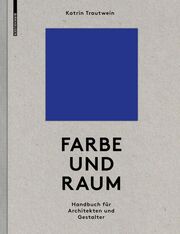Architect Jong Soung Kimms Romanesque Architecture (gebundenes Buch)
Architect Jong Soung Kimms Romanesque Architecture
Photo Essay France, Engl/kor
Erschienen am
01.09.2022
Bibliographische Informationen
ISBN/EAN: 9783803023773
Sprache: Englisch
Seiten: 128 S.
Auflage: 1. Auflage 2022
Bindung: gebundenes Buch
Beschreibung
The present volume is Jong Soung Kimms fourth photo essay in the traversal of Romanesque architecture in Europe captured through an architects eyes. The journey now focuses on the western portion of the post-Carolingian world: France. From among the more than four or five thousand Romanesque churches which dot the French landscape, a mere handful of monuments of architectural merit, large and small, have been selected to be discussed in the present survey. Unquestionable masterpieces of Romanesque architecture such as La Basilique Sainte-Marie-Madeleine in Vézelay, Léglise abbatiale Saint-Étienne in Caen, or La Basilique Saint-Sernin in Toulouse are given due respect. Lesser-known monuments such as LAbbaye de Saint-Savin-sur-Gartempe, LAbbaye de Saint-Philibert in Tournus, or La collégiale Saint-Étienne in Neuvy-Saint-Sépulchre are highlighted for their innovations, the first two for their vaulting techniques and Saint-Étienne for its unusual spatial organization. LAbbaye du Thoronet is discussed as one of the most important examples of Cistercian architecture and for the appeal it garnered in the 20th century among contemporary architects including Le Corbusier. Two Catalan Romanesque churches, Saint-Michel-de-Cuxa and Saint-Martin-du-Canigou, serve as the endnote because of their importance in the development of Romanesque architecture in the Pyrenees. Der vorliegende Band enthält Jong Soung Kimms vierten fotografischen Essay über die romanische Architektur in Europa - gesehen aus dem Blickwinkel eines Architekten. Sein Augenmerk gilt dieses Mal dem westlichen Teil der postkarolingischen Welt: Frankreich. Aus den mehr als vier- oder fünftausend romanischen Kirchen dieses Landes, die ihm bis heute ihren Stempel aufdrücken, wurde eine Handvoll ausgewählt, um deren jeweils spezifischen architektonischen Wert zu diskutieren: darunter nicht nur die allseits anerkannten Meisterwerke, sondern auch Bauwerke, die weniger bekannt sind, aber zum Beispiel wegen der Innovationen, für die sie stehen, ihrer besonderen Gewölbetechnik oder einer ungewöhnlichen räumlichen Organisation von besonderem Interesse sind.
Andere Artikel von "Kimm, Jong-Soung"
Lieferbar innerhalb 14 Tagen

Lieferbar innerhalb 14 Tagen

Lieferbar innerhalb 14 Tagen

Weitere Artikel aus der Kategorie "Kunst/Architektur"
Nicht verfügbar

Neuerscheinung

Neuerscheinung

Lieferbar innerhalb 24 Stunden









